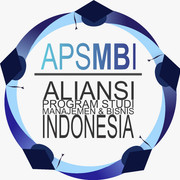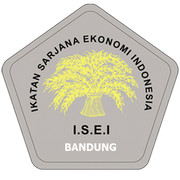Improving Performance through Leadership Agility, Organizational Support, and Organizational Commitment: An Integrated Approach
Abstract
Keywords
Full Text:
PDFReferences
Akkaya, B., & Sever, E. (2022). Agile leadership and organization performance in the perspective of VUCA. In Post-pandemic talent management models in knowledge organizations (pp. 213-228). IGI Global.
Akkaya, B., Panait, M., Apostu, S. A., & Kaya, Y. (2022). Agile leadership and perceived career success: The mediating role of job embeddedness. International Journal of Environmental Research and Public Health, 19(8), 4834. https://doi.org/10.3390/ijerph19084834
Asbari, M., Hidayat, D. D., & Purwanto, A. (2021). Managing employee performance: From leadership to readiness for change. International Journal of Social and Management Studies, 2(1), 74-85. https://doi.org/10.5555/ijosmas.v2i1.12
Bateman, T. S., & Strasser, S. (1984). A longitudinal analysis of the antecedents of organizational commitment. Academy of management journal, 27(1), 95-112. https://doi.org/10.5465/255959
Bernardin, H. J. (2003). Human resource management: An Experiential Approach. Sixth edition.Mc. Graw-Hill Inc. New York.
Bitew, T. A. (2023). Working Conditions, Perceived Organizational Support and Organizational Commitment of Employees with Disabilities in Gondar City Public Sectors. European Online Journal of Natural and Social Sciences, 12(1), 53-68.
Blau, P.M., (1964). Exchange and power in social life. Wiley.
Chao, G. T., O'Leary-Kelly, A. M., Wolf, S., Klein, H. J., & Gardner, P. D. (1994). Organizational socialization: Its content and consequences. Journal of Applied psychology, 79(5), 730-743. https://doi.org/10.1037/0021-9010.79.5.730
Eisenberger, R., & Stinglhamber, F. (2011). Perceived organizational support: Fostering enthusiastic and productive employees. American Psychological Association.
Eisenberger, R., Cummings, J., Armeli, S., & Lynch, P. (1997). Perceived organizational support, discretionary treatment, and job satisfaction. Journal of Applied Psychology, 82(5), 812–820. https://doi.org/10.1037/0021-9010.82.5.812
Eisenberger, R., Fasolo, P., & Davis-LaMastro, V. (1990). Perceived organizational support and employee diligence, commitment, and innovation. Journal of Applied Psychology, 75(1), 51–59. https://doi.org/10.1037/0021-9010.75.1.51
Eisenberger, R., Stinglhamber, F., Vandenberghe, C., Sucharski, I. L., & Rhoades, L. (2002). Perceived supervisor support: contributions to perceived organizational support and employee retention. Journal of applied psychology, 87(3), 565. https://doi.org/10.1037/0021-9010.87.3.565
Gouldner, A. W. (1960). The norm of reciprocity: A preliminary statement. American sociological review, 161-178. https://doi.org/10.2307/2092623
Isari, D., Bissola, R., & Imperatori, B. (2019). HR devolution in the digital era: What should we expect?. In HRM 4.0 for human-centered organizations (Vol. 23, pp. 41-61). Emerald Publishing Limited.
Joiner, B & Joseph, S. (2007). Leadership agility. Five Levels of Mastery for Anticipating and Initiating Change. A Willey Imprint.
Joiner, B. (2009). Creating a culture of agile leaders: A developmental approach. People and Strategy, 32(4), 28-35.
Joiner, B. (2009a). Guide to Agile Leadership. Industrial Management. 51(2), 10.
Kaplan, M., & Kaplan, A. (2018). The relationship between organizational commitment and work performance: a case of ındustrial enterprises. Journal of Economic and Social Development (JESD), 5(1), 46-50.
Lediju, T. (2016). Leadership Agility In The Public Sector: Understanding The Impact Of Public Sector Managers On The Organizational Commitment And Performance Of Millennial Employees. Dissertation. Saybrook University
Li, M., Jameel, A., Ma, Z., Sun, H., Hussain, A., & Mubeen, S. (2022). Prism of employee performance through the means of internal support: a study of perceived organizational support. Psychology research and behavior management, 965-976.
Marler, J. H., & Boudreau, J. W. (2017). An evidence-based review of HR Analytics. The International Journal of Human Resource Management, 28(1), 3-26. https://doi.org/10.1080/09585192.2016.1244699
Mowday, R. T., Porter, L. W., & Steers, R. M. (2013). Employee—organization linkages: The psychology of commitment, absenteeism, and turnover. Academic press.
Petrou, P., Demerouti, E., & Schaufeli, W. B. (2018). Crafting the change: The role of employee job crafting behaviors for successful organizational change. Journal of management, 44(5), 1766-1792. https://doi.org/10.1177/0149206315624961
Porter, M. (1990). The Competitive Advantage of Nations. The Free Press, A Division of McMillan, Inc.
Prastiti, Z. D. (2021). The relationship between organizational commitment and readiness to change for employee of PT X. Jurnal Organisasi dan Manajemen, 17(1), 78-88. https://doi.org/10.33830/jom.v17i1.1003.2021
Qader, M. A. A. (2021). The Role of Organizational Agility and its Impact on Achieving Organizational Commitment a Field Study: Jordan Cement Company. NVEO-Natural Volatiles & Essential Oils Journal, 2858-2876.
Ramdhani, G.F & Desiana, P.M. (2022). The Role Of Psychological Capital And Perceived Organizational Support On Task Performance: The Mediating Effects Of Individual Readiness For Change. Contemporary Research on Business and Management. 1st edition. Universitas Indonesia.
Ratnasari, D., Utami, H. N., & Prasetya, A. (2023). The Impacts of Perceived Organizational Support and Work Environment on Employee Performance: The Mediating Effects of Job Satisfaction. Profit: Jurnal Adminsitrasi Bisnis, 17(2), 267-281. https://doi.org/10.21776/ub.profit.2023.017.02.10
Reichers, A. E. (1985). A review and reconceptualization of organizational commitment. Academy of management review, 10(3), 465-476. https://doi.org/10.5465/amr.1985.4278960
Rhoades, L., Eisenberger, R., & Armeli, S. (2001). Affective commitment to the organization: the contribution of perceived organizational support. Journal of applied psychology, 86(5), 825. -836. https://doi.org/10.1037/0021-9010.86.5.825
Risal, M., & Tahier, I. (2022). Employee Performance In Effect Of Organizational Commitment And Work Attitude (Study at the Regional Revenue Service of Palopo City. Jurnal Mantik, 6(1), 276-279. https://doi.org/10.35335/mantik.v6i1.2221
Robbins, P.S., & Judge, A. T. (2015). Perilaku Organisasi, ed.16 diterjemahkan oleh: Ratna dan Febriella. Salemba Empat.
Rousseau, D. M., & Tijoriwala, S. A. (1998). Assessing psychological contracts: Issues, alternatives and measures. Journal of Organizational Behavior: The International Journal of Industrial, Occupational and Organizational Psychology and Behavior, 19(S1), 679-695. https://doi.org/10.1002/(SICI)1099-1379(1998)19:1+<679::AID-JOB971>3.0.CO;2-N
Salau, A. N. (2022). Perceived Organisational Support and Employee Performance: The Moderating Role of Organisational Culture. Iconic Research And Engineering Journals, 6(2), 172-179.
Setiawati, L. (2021). The effect of agile leadership and work environment to employees’ performance in a VUCA world (Study on millennial generation employees in Jabodetabek). International Journal of Social Science and Human Research, 4(11), 3123-3131. https://doi.org/10.47191/ijsshr/v4-i11-08
Settoon, R. P., Bennett, N., & Liden, R. C. (1996). Social exchange in organizations: Perceived organizational support, leader–member exchange, and employee reciprocity. Journal of applied psychology, 81(3), 219-227. https://doi.org/10.1037/0021-9010.81.3.219
Sofat, K., Kiran, R., & Kaushik, S. (2015). Organizational change and organizational commitment: An empirical study of IT organizations in India. Global Journal of Management and Business Research, 15(6), 39-49
Suhermin, S. (2012). Pemberdayaan kerja profesional sebagai mediasi dukungan organisasi dan pertukaran pemimpin-anggota (lmx) terhadap komitmen organisasional. EKUITAS (Jurnal Ekonomi dan Keuangan), 16(2), 209-229. https://doi.org/10.24034/j25485024.y2012.v16.i2.219
Suhermin, S. (2022). Empowerment as a Mediation of Organizational Support. Wiga: Jurnal Penelitian Ilmu Ekonomi, 12(4), 324-337. https://doi.org/10.30741/wiga.v12i4.915
Suhermin, S., Kurniawan, G., Bon, A. T., & Sulistyan, R. B. (2023). Performance Improvement Model: Commitment Development Based on Empowering and Organizational Learning. EKUITAS (Jurnal Ekonomi dan Keuangan), 7(3), 373-393. https://doi.org/10.24034/j25485024.y2023.v7.i3.5777
Suhermin, S., Suryawirawan, O. A., & Bon, A. T. (2023). Systemic Entrepreneurship Intention Model, Family Background, And Prior Entrepreneurial Experience On Students’entrepreneurial Intention. Jurnal Aplikasi Manajemen (JAM), 21(3), 642-658. https://doi.org/10.21776/ub.jam.2022.021.03.07
Suhermin. (2018). Perceived Organizational Support And Personal Value On Organizational Commitment. Proceeding Book 6th Asian Academic Society International Conference, 787-793
Sulistyan, R. B., Paramita, R. W. D., Setyobakti, M. H., Rizal, N., & Lukiana, N. (2020). Perceived Organizational Support on Employee Performance: The Mediating Effect of Job Stress. Proceedings of the 1st International Conference on Social Science, Humanities, Education and Society Development. https://doi.org/10.4108/eai.13-10-2020.2303710
Van de Ven, A. H., & Pooel, M. S. (2002). Alternative Approach for Studying Organizational Change. European Group Organizational Studies, 26(9).
Widodo, A. P. (2022). The Effect of Perceived Organizational Support, Psychological Empowerment and Structural Empowerment on Employee Engagement and Job Performance at PT. Angkasa Pura I (Persero). Asian Journal of Management Analytics, 2(1), 45-60. https://doi.org/10.55927/ajma.v2i1.2613
Yazıcı, Ş., Özgenel, M., Koç, M. H., & Baydar, F. (2022). The mediator role of employee voice in the effect of agile leadership on teachers’ affective occupational commitment. Sage Open, 12(3), 21582440221119480. https://doi.org/10.1177/21582440221119480
DOI: https://doi.org/10.17509/image.2024.005
Refbacks
- There are currently no refbacks.
Copyright (c) 2024 Suhermin, Rika Rahayu, Wiwiek Srikandi Shabrie

This work is licensed under a Creative Commons Attribution-ShareAlike 4.0 International License.
Image : Jurnal Riset Manajemen is licensed under a Creative Commons Attribution-ShareAlike 4.0 International License
View My Stats



